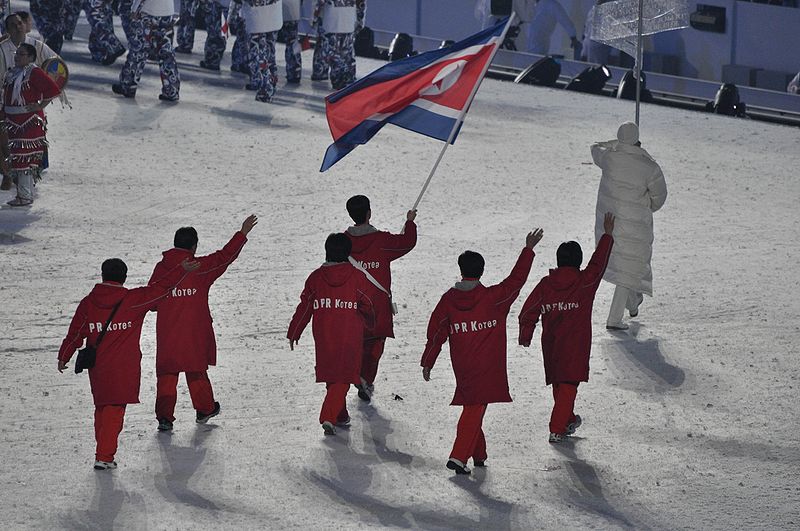Jason Kenosky
Journal Staff
In 1994, President Clinton considered launching an air strike against North Korea as an attempt to extinguish North Korean nuclear sites. Appreciating the severity of the situation, North Korea agreed to abandon their desire to become a nuclear state. Despite United Nations interests, and although North Korea is a member of the U.N., in 2000 the North decided to resume its nuclear program. It became the 8th country to successfully develop a nuclear device in 2006.
Like Clinton, President Bush too considered striking North Korea when he labeled it as part of the “Axis of Evil” in 2002 — although Bush favored a ground invasion instead of limiting engagements to air capabilities. The invasion of Iraq that began one year later scrapped any plans Bush might have had for North Korea.
U.S. spy satellites first observed North Korean nuclear reactor sites as early as the 1980s. At the time, the C.I.A. believed at the time that the North could possess one or two nuclear weapons by the early 1990s. North Korea currently has between 8 and 12 nuclear warheads, although it is unclear if they currently possess an effective delivery system.
In April 2009, North Korea demonstrated its second successful nuclear test. Around the same time, it attempted to launch a satellite into orbit. The launch came under scrutiny from the U.N. under the thought that if a country could effectively launch a satellite into orbit, it would have a capable delivery system for a nuclear warhead.
The launch was considered a success by North Korea; claiming the satellite is now “broadcasting patriotic tunes from space” according to a 2010 New York Times article. However, data captured by military and private satellites that tracked its course supposedly show the rocket — and its payload — falling into the ocean.
President Obama proclaimed the U.S. and its allies would “stand up” to North Korea one month prior to the second nuclear test. This second event came with the declaration by North Korea that it was casting off any notion to halt its nuclear program.
On Nov. 12, U.S. nuclear scientist Dr. Hecker was allowed to view a new production site in North Korea. According to Dr. Hecker, the site was an ultra-modern facility with hundreds upon hundreds of centrifuges. He was prevented from confirming varying claims that the new site was already producing low-enriched uranium.
Intelligence claims the U.S. has been aware of North Korea’s uranium enrichment for many years, adding the possibility that other sites may exist. The uranium enrichment is being carried out with spent fuel rods from a nuclear [energy] reactor at Yongbyon.
The Korean War that began in 1950 did not end in 1953. An armistice was agreed to — a cease fire — but a formal declaration ending the conflict has yet to be reached. Technically, the two Koreas are still at war. Small acts of attrition, attempted assassinations, and other accounts of provocation have occasionally been hurled at each other ever since. Most recently, over these last few weeks.
North Korea has deemed the U.S. its sworn enemy since the Korean War. The likelihood of North Korea going to war with the U.S. is pretty slim, although the likelihood of a new North-South Korean war is always a possibility. There has been a lot of concern in the U.S. recently over Dr. Hecker’s latest findings. The main concern, as read on various forums, is the possibility of a nuclear strike against the U.S. This is an unlikely scenario, and here is why:
North Korea is a self-proclaimed military state with just over 9 million military personnel. As a military state, it believes it has the right-and duty-to flex its muscle against anyone it deems to be weaker. South Korea is the only country that the North really views as “weak.” It is also the only country the north can effectively provoke without any serious threat of repercussion outside of the sanctions already imposed.
Despite what U.S. news agencies report, we are not leading the way to peace on the Korean Peninsula. It is actually China that is urging the Six-Party nations (China, Japan, North Korea, Russia, South Korea, and the U.S.) to negotiate an end to North Korea’s nuclear desires. In fact, North Korea’s only allies, China and Russia, have been pressuring North Korea for many years to improve relations with its southern neighbor.
Unless the U.S. provokes North Korea, any engagement between the two countries would leave North Korea duking it out alone. North Korea has no theocratic beliefs; at least not openly by any individual. The concept of heaven and hell does not exist amongst leadership; no after-life in which leaders muse over accomplishments. Their legacy and military superiority is solely dependent on keeping the country alive. It would take some serious nihilism to provoke a situation that could result in effectively erasing them from the planet.












